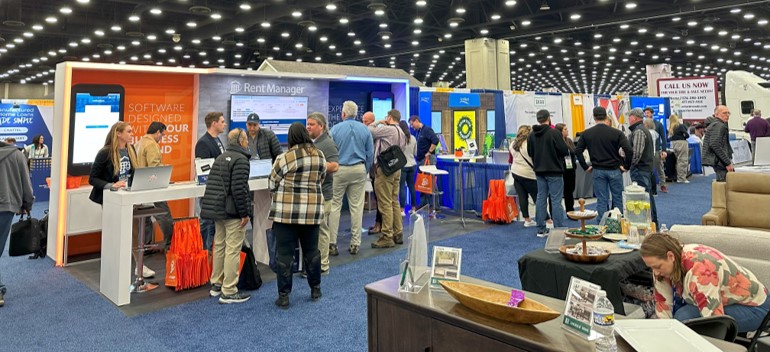Boy, have we seen significant changes within the property management industry over the last decade! Technology advances, federal, state and local law enactments; coupled with the ongoing need to enhance the customer experience—it’s just plain tough to keep up with everything.
Although your responsibilities might not require you to be completely familiar with all the changes in the marketplace, I am sure you have felt the trickle-down impact. That’s why we’ve come together with AmRent to take a high-level look at some property management trends that have affected everyone’s operations.
Online Applications
With the growth of online applications, many communities have worked to reduce approval response time for prospective residents. While quick turn-around time is a positive, there are some inherent risks associated with the online application process. Although most applicants are truthful about their personal identifying information (PII), some may intentionally alter pieces of data or use another person’s PII as their own.
According to the National Apartment Association’s white paper, Synthetic Fraud: How to Identify, Respond To & Prevent It, one particular type of fraud is more prevalent with online applications—synthetic fraud. This happens when an individual uses legitimate PII, but not necessarily all of the PII belongs to them. Synthetic fraud is challenging to detect because most screening solutions evaluate the name, date of birth, social security number, and address as valid. What they aren’t detecting are suspicious identity patterns lurking behind the scenes.
If you’ve recently suffered a skip when the applicant’s background check was clear, you may have experienced synthetic ID fraud. Late detection of identity fraud often results in forced turnover and delinquencies. By using a service like AmRent’s Cross Check with Synthetic ID, housing providers can proactively be alerted to difficult-to-detect fraudulent patterns. Asking applicants to produce valid forms of ID early in the screening process saves both time and significant dollars.
Data Privacy
As consumers, we want our PII protected and our credit and public record information only disclosed when a legitimate business need has been certified—like when we apply for rental housing.
But what happens when state repositories or county courthouses won’t disclose thorough PII with the public, criminal, or eviction records they house in their systems? False-positive records (partial PII matches) could be delivered in screening reports, or in some cases, the records from these sources may not be delivered at all. Either way, housing providers are negatively impacted by invalid or absent applicant details.
Balancing data privacy and access to information requires screening companies and third-party public record sources to work cooperatively, so end users—like housing providers—can achieve the best possible screening results.
“Use of Information” Laws and Ordinances
Over the past several years, many states and cities have passed and enacted laws or ordinances that limit the use of information by landlords or consumer reporting agencies. Many of these new laws and regulations place restrictions on the use of criminal records by property owners and managers when evaluating applicants for rental housing. Others enacted ultimately ban the delivery or use of public records, including eviction data. (For more on this topic, see our blog post from September of 2019: Ban the Box and Beyond: How to Comply with State Laws and Local Ordinances)
While legislators in these states and localities are well-intentioned, the impact of these laws and ordinances is that rental housing providers are left with limited information for use in determining financial and safety risks to their communities.
What’s next?
If you are members of a local or state apartment association, stay engaged and active with legislative or public policy committees to remain informed about industry trends. Having an opportunity to weigh in early with your comments and impact statements can help shape the direction taken by governmental legislators.
If your screening service is not delivered through Rent Manager from AmRent, check with your current provider to learn how they are managing risk and compliance obligations for rental fraud, data privacy, and use of information restrictions.
_____________________________________________________________________________________________________________
This information does not, and is not intended to, constitute legal advice; instead, all information is for general informational purposes only. Consult with your legal counsel for requirements related to your company. Obligations related to application fees, adverse action notification and completion of individualized assessments when considering criminal records should also be examined.
 Register for RMUC.25
Register for RMUC.25





